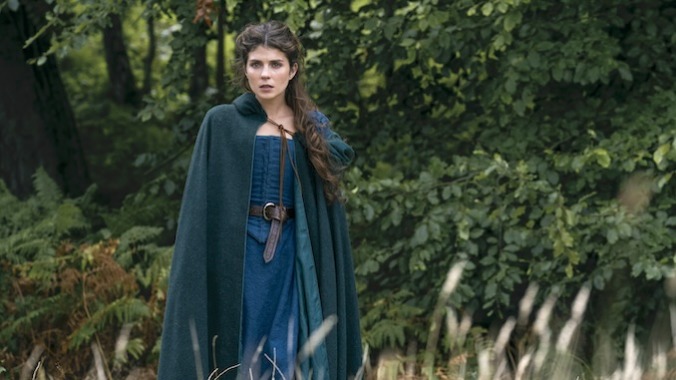Prime Video’s My Lady Jane Gives a Historical Underdog a Chance to Shine
Photo Courtesy of Prime Video
If you’ve never heard of Lady Jane Grey, who briefly held the English throne between the reigns of Edward VI and “Bloody” Mary I, that’s to be expected. After all, Jane was only Queen for nine days in 1553 before she was deposed by her cousin, the aforementioned “Bloody” Mary, and later executed in 1554 alongside her husband, Lord Guildford Dudley. At the time, she was only a teenager, likely only 16 or 17 years old.
Lady Jane’s chapter in the history books may be short (probably more like a paragraph), but in the 2016 YA novel My Lady Jane, co-written by Brodi Ashton, Cynthia Hand, and Jodi Meadows, she takes center stage. Their version of history reimagines Jane’s story as one not of the tragic death of an unfortunate teenager, but as a whimsically magical tale of romance, intrigue, and clever misdirection. Now the series of the same name from Prime Video aims to do the same, albeit for a slightly more mature audience than the novel.
My Lady Jane follows the titular heroine (Emily Bader), a smart and spunky teen far more interested in science than romance, who is swiftly married off by her scheming mother Frances (Anna Chancellor) to the first nobleman’s son who will have her: Lord Guildford Dudley (Edward Bluemel), son of the socially climbing Lord Dudley (Rob Brydon). While Jane’s independent spirit bristles at the idea of an arranged marriage, she finds herself with few options preferable to matrimony, and thus winds up wedded to Guildford, who is made only marginally more appealing by the fact that he turns out to be the mysterious man who caught her eye in a tavern before she knew his true identity.
It’s only after the knot is tied that she learns the true reason for Lord Dudley’s enthusiasm about the match: Guildford is an Eðian (EE-thee-un), a class of humans who can transform into animals. And unlike other Eðians, who can transform back and forth at will (although no one gets to pick their animal alias), Guildford cannot control his own metamorphosis. He is a man only at night; by day, he is a horse.
-

-

-

-

-

-

-

-

-

-

-

-

-

-

-

-

-

-

-

-

-

-

-

-

-

-

-

-

-

-

-

-

-

-

-

-

-

-

-

-








































